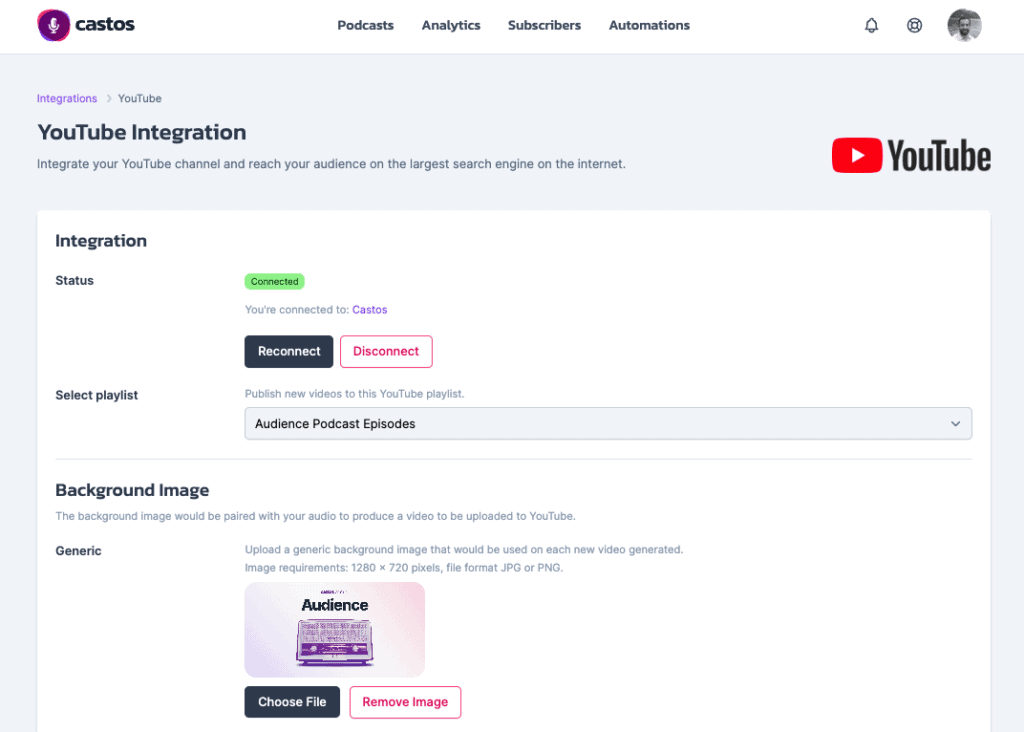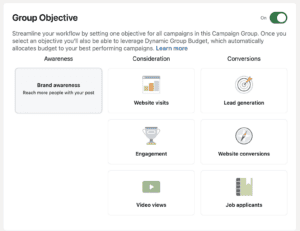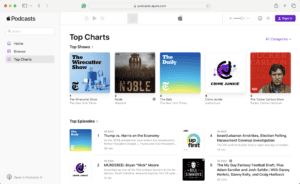Owing to their easily accessible and entertaining nature, podcasts have proven to be one of the most engaging types of content in the past few years. In fact, reports show that one-third of the American population now listens to podcasts on a regular basis.
If you have a podcast or planning on starting a podcast, you might be looking for ways to boost your podcast’s visibility. From marketing tools that increase your reach to editing software that enhances the quality of your podcasts, we’ve got a list to help you stand out among other podcast creators. Below are marketing tools for podcasters (for beginners and advanced podcasters) you can use to create your own perfect podcast everyone would love to listen to.
1. Podcast Hosting Platforms
Leading podcast creators are now using podcast hosting platforms to take advantage of these tools’ ability to store audio and video files online for download and sharing. This is one of the most important marketing tools for podcasters and a key part of your marketing strategy.
Besides providing podcast creators with file hosting and RSS feeds for their podcasts, podcast-hosting platforms also offer insights about your listeners through analytics and reporting. Leveraging this data from podcast hosting platforms can help expand your reach and bring in new ways to increase your audience.
A good example of a podcast hosting platform is Castos. Castos is a podcast hosting tool that allows creators to manage and produce their podcasts. It’s designed specifically for podcasters who want to make a living by producing podcasts. The tool gives users complete podcast support to increase their revenue and improve their marketing strategy.
2. Podcast Aggregators
One of the best podcast promotion tactics and ways to grow your audience is to sign up your podcast across various podcast directories. The top-performing podcasts today use programs such as podcast aggregators and listeing apps to allow their audience to download their content once it’s published online. Many podcast lovers use aggregators to automatically keep track of all the podcasts they listen to.
With these tools, you don’t have to “miss” a new episode. You can listen to it once you have the time. No rush. Here are some of the best podcast aggregators or directories today:
- Spotify Podcasts
- Google Podcasts
- Apple Podcasts (iTunes)
- iHeart Radio
- Podchaser
- Overcast
- Stitcher
3. Social Media
Promoting your podcasts on social media can help you strengthen relationships with viewers and grow your community. To successfully market a podcast on social media, you have to choose your platform wisely. Never limit yourself to only one social media platform. Experts recommend focusing on two main platforms and then creating accounts for all other social media sites. Here are some of the best social media channels to promote your own podcast:
- Tiktok
Another great way to share podcasts is through soundbites. You may already have seen these on social media of your favorite podcasts. Soundbites are short and catchy slices of audio that summarize your whole podcast. Consider using livestreaming, YouTube video,
Similar to audiograms, soundbites are an amazing way to create podcast episode trailers or highlight ideas from your podcasts. For each episode you create, also try to create a teaser before you publish the podcast. If you wish to turn your audio into visual content, you can also try online video-to audio software such as Headliner, Wavve, Veed, and Vokal.
4. Recording Software
Do you want to have a successful podcast? Don’t skimp on your audio quality and invest in good recording software. Since podcasts are primarily audio content, you have to make sure that the audio quality is good, which means recording software belongs on our list of marketing tools for podcasters.
Choosing the right podcast recording software can be overwhelming at first. You need to ensure you’re using the tool that best fits your needs. Aside from capturing crisp sound, you also need recording software with editing capabilities. Most recording software also include content repurposing tools that allow you to turn your podcast into different mediums for various channels.
Examples of popular and trusted recording software are Adobe Audition and Logic Pro. Other examples include Ringr, Squadcast, and Reaper. If you want to try free recording software with decent audio quality, we also recommend Zoom and Zencastr.
5. Audio Editing Tools
Podcasts are mainly audio, which means how you sound, how your guests sound, and the overall sound quality of your audio recordings are vital in attracting and engaging your listeners. No matter how interesting and humorous your podcast content is, if the audio file quality is terrible, people won’t listen.
This is why audio editing is incredibly important in capturing the appeal and positive sentiment of your audience. You want your podcast to be fun and not boring. You want all your episodes to be a masterpiece. Many podcast creators even say that their first five episodes should be the strongest and should hook people into becoming listeners. So it’s incredibly important to spend a lot of time editing before hitting the publish button.
When it comes to audio editing tools, there are a few tools that have proven helpful to many podcasters. The two best audio editing software when considering features and ease-of-use is Pro Tools and Riverside. Other good audio editing tools that are free and worthy of mention are Audacity, GarageBand, and Music Maker. It’s important to ensure that you’re investing in the best podcast editing tools for your show.
Other Marketing Tips for Your Podcast
- Using a newsletter: Releasing a newsletter before a podcast will increase hype and get your followers to engage with your channel more.
- Option to rate and review: Acting as social proof, reviews help other people who enjoy your show share their experience with others.
- Set up the foundation of your podcast: This includes a proper podcast name, tone of voice, and cover artwork to go with your podcast.
- Provide educational value: Listeners love podcasts that provide them with educational value. Just make sure you understand your podcast audience so you can serve the right kinds of content that attracts new listeners.
- Add lots of value. Whenever you post a new episode to your site, make sure to include show notes and an episode transcription.
- Optimize: Don’t forget to optimize your topics and content, especially if you have a website for your podcast. Furthermore, SEO still matters even in social media.
- Collaborate: Contact other podcasters and artists to parenting with you for future projects. This can be a great way to expand your network and audience.
- Use marketing tools for podcasters: Marketing takes on many forms these days. Here’s a list of best marketing tools that will give you ideas on how to get started.
- Create a podcast website: While it’s good to host your podcast on already popular platforms, it’s also a great idea to create a website for your podcast. Website allows you to build an email list, reach a broader audience, and improve your searchability on the internet.
Is a Podcast Marketing Strategy Really Important?
The short answer is yes. Like every form of content marketing on the internet, the “build it and they will come” mentality doesn’t really get you anywhere. Therefore, a good podcast marketing strategy and a clear target audience can dictate how successful your podcast will be.
Podcast Marketing Strategies for Success
It can be difficult for new podcast creators to grow their following or make a name in the industry. Even the most popular podcasts today didn’t just get a huge following overnight. The use of the marketing tools for podcasters listed above can help you improve your podcast quality and increase your audience. Remember that podcasts are a form of content. If you want to get more podcast listeners, you have to make the effort to produce high-quality podcasts.



